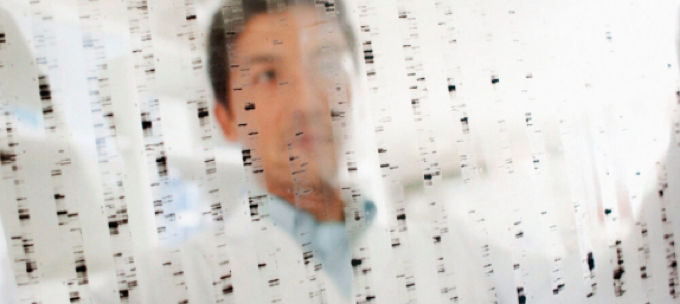Do genomic regions influence the severity of Covid-19 disease?

Last Updated on August 19, 2022 by Joseph Gut – thasso
August 18, 2022 – The question why certain patients suffer from very severe, even fatal conditions after infections with SARS-CoV-2 has occupied patients, the general population, medical professionals, and the media all alike for some time now. As a basic researcher in the field of genetic susceptibility of patients for the development of very serious adverse, even fatal, drug reactions, one could wonder if for viral infections, similar genetic predispositions could leave some patient at very high risk for serious, if not fatal SARS-Cov-2 induced disease, i.e., Covid-19 disease.
 Identification of new genomic regions that influence the severity of Covid-19 disease? This was the topic behind a study just published in the Journal Nature. Of course, as usual for scientific publications, the highly complex content is/was hardly uderstandable for the individuals most affected, namely the individual Covid-19 disease patient, not being a scientific.
Identification of new genomic regions that influence the severity of Covid-19 disease? This was the topic behind a study just published in the Journal Nature. Of course, as usual for scientific publications, the highly complex content is/was hardly uderstandable for the individuals most affected, namely the individual Covid-19 disease patient, not being a scientific.
So, let’s give it here a try, because everyone, simply everyone, is potentially threatened by SARS-CoV-2. With or without mask. So then: The present study looked at an overview of contributing studies to the Host Genetics Initiative including geographical overviews of contributing studies with patient data from ancestry’s defined as Middle Eastern (MID), south Asian (SAS), east Asian (EAS), African (AFR), admixed American (AMR) and European (EUR). As such, the study presents a genome-wide association study (GWAS) meta-analysis of more than 125,000 cases and over 2.5 million control individuals across 60 studies from 25 countries for three Covid-19 disease-related phenotypes.
These phenotypes included individuals critically ill with Covid-19 disease who required respiratory support in hospital or died from the disease; individuals with moderate or severe COVID-19 hospitalized due to symptoms associated with the infection; and all cases with reported SARS-CoV-2 infection regardless of symptoms. The study found that genetic variation in the gene that codes for lung surfactant proteins can affect the severity of Covid-19 disease. Lung surfactant helps “grease” lung movement when breathing and protects against some infections. Thus, one variation in the surfactant protein D (SFTPD) gene confers risk
 for hospitalization and has been previously associated with increased risk of other lung diseases such as chronic obstructive pulmonary disease and decreased lung function. SFTPD encodes surfactant protein D (SP-D), which participates in innate immune response, protecting the lungs against inhaled microorganisms.
for hospitalization and has been previously associated with increased risk of other lung diseases such as chronic obstructive pulmonary disease and decreased lung function. SFTPD encodes surfactant protein D (SP-D), which participates in innate immune response, protecting the lungs against inhaled microorganisms.
Another genetic variation in an area named SLC22A31 also confers risk of hospitalization. SLC22A31 belongs to the family of solute carrier proteins that facilitate transport across membranes and is co-regulated with other surfactant proteins. Overall, the study found a total of 23 genome-wide significant loci (i.e., genes or gene regions) to account for the phenotypes examined. Besides the aforementioned genes were among the many identified loci also the MUC5B– and ACE2-genes, to mention just a few, all of which help to reveal compelling insights regarding disease susceptibility and severity. In fact, closer statistical analysis allowed to separate gene loci into those responsible for susceptibility of individuals for SARS-CoV-2 infection (the first step in the Covid-19 disease) and those for susceptibility for serious disease course (i.e., hospitalization needed or death). In fact, the researchers identified 7 gene loci that clearly influence susceptibility to SARS-CoV-2 infection, while 16 different gene loci that are substantially more likely to affect the risk of COVID-19 hospitalization.
Overall, the study included all possible Covid-19 disease phenotypes from individuals critically ill with Covid-19 disease who required respiratory support in hospital or died from the disease, to individuals with moderate or severe Covid-19 disease hospitalized due to symptoms associated with the infection, to all cases with reported SARS-CoV-2 infection regardless of symptoms. Thanks to this type of data, the initiative was also able to test whether the effect of Covid-19 disease-related genetic variants was markedly different across ancestry groups. The study did not detect obvious differences between ancestry groups, attributing observed differences in the effect of Covid-19 disease-related genetic variants to the differing inclusion criteria across studies in terms of classifying Covid-19 disease severity. However, it was also noted that these differences across the studies might mask the true underlying differences in effect sizes between ancestry groups.
This study clearly undermines that there are human individuals that carry genetic predispositions for severe Covid-19 disease courses, while there seem to be other (lucky) individuals who may geht infected by SARS-CoV-2 but do not progress to overt Covid-19 diseases. We may also note that thasso has already had several articles on the many facets behind the possible genetics of the Covid-19 disease, like here in “Genetic Links Revealed Between Severe-Covid 19 And Other Diseases” and many others. Just search in thasso for “covid” in the English, the German, or the French areas.
See here a short sequence on the possible role of genetic variants of patients underlying their personal courses of Covid-19 disease:


Leave a Reply
You must be logged in to post a comment.
Optional: Social Subscribe/Login